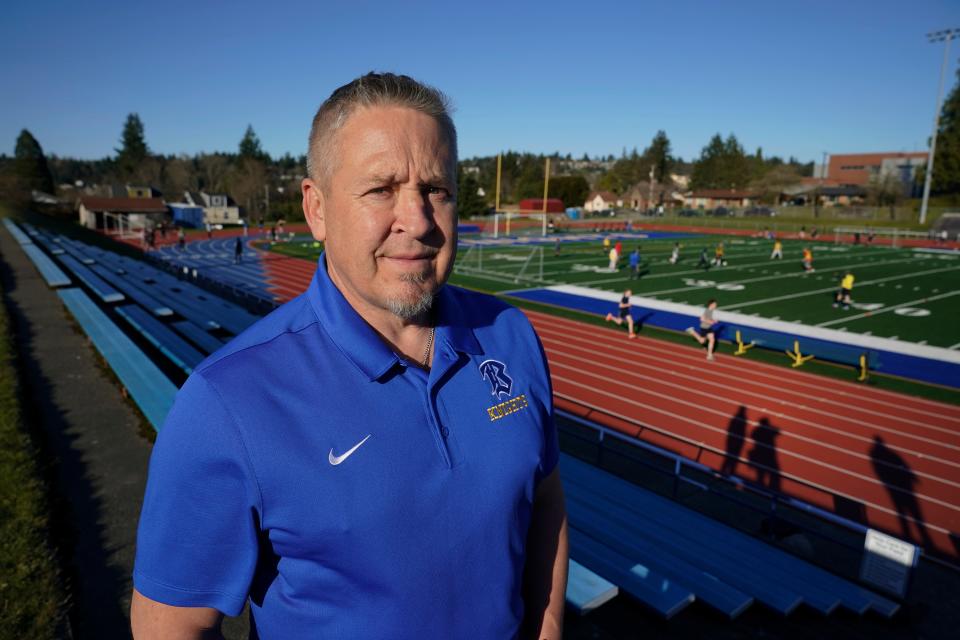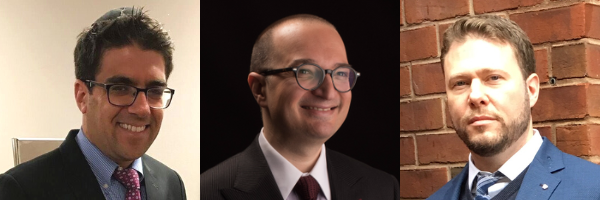We are Muslims and Jews. We needed the Supreme Court to side with coach's Christian prayer.
Fouad Zaban is head coach of the Fordson High School football team in Dearborn, Michigan. He's a Muslim, like most of his team. If a player offered him a drink of water during Ramadan, the coach would have to decline. If the student asked why, he would explain that he is fasting because of his faith.
Would this innocent interaction violate the Constitution? Maybe, if the U.S. Court of Appeals for the 9th Circuit is correct. (The U.S. Supreme Court on Monday vindicated the right of religious Americans to participate in public life while maintaining their faith.)
According to the 9th Circuit ruling, any public display of religion by a public school employee within the view of his students at or near school functions is constitutionally suspect. We, as representatives of Muslim and Jewish organizations, hope the Supreme Court rejects the 9th Circuit's restrictive view and vindicates the right of religious Americans to participate in public life while maintaining their faith.

Last year, the 9th Circuit ruled that the Constitution's ban on government establishment of religion required a Seattle-area public school to punish its football coach, Joseph Kennedy, after he knelt on the 50-yard line, bowed his head, closed his eyes "and prayed a brief, silent prayer." He defied the school's long-running campaign to silence his public displays of faith. The school ultimately fired him.
How it's supposed to work: Lizzo's handling of offensive lyric a stark contrast to the 'Suck it up, snowflake' crowd
Kennedy appealed to the Supreme Court, arguing that his suspension from the school violated his rights to free speech and free exercise of religion.
The lower court reasoned that Kennedy's quiet prayer might signal that the public school had unconstitutionally endorsed religion or that a student might feel compelled to join him, even if doing so would violate the student's conscience. The court’s concern that students from minority faiths might feel offended or coerced into prayer, however misguided, is no doubt sincere.
But orthodox members of minority faiths like Judaism and Islam have more to fear from a government that seeks to drive faith from the public square than from one that allows their neighbors to publicly profess their faith.
Don't ask educators to compromise their faith
Observant Jews and Muslims engage in public practices that may catch the attention of others. For example, a Jewish coach standing on the sidelines at a football game would be required under Jewish law to make a blessing whenever he eats or drinks. Jews and Muslims wear distinctive attire, which could prompt questions from students that a teacher would naturally answer. The 9th Circuit's decision would allow or even require public schools to ban such private religious conduct.

The school in this case offered to let coach Kennedy keep his job if he agreed to pray at a later time when no students would see him. Those familiar only with Christianity, as the appeals court seems to have been, might not understand the coach’s claim that this would force him to violate his religious beliefs.
Republicans, why do we allow it?: Tuesday's election shows Trump still influences voters
But such a "compromise" might put adherents of both Judaism and Islam in Kennedy's dilemma. Both faiths require adherents to pray during certain times of the day. Thus, an observant Jewish or Muslim staff member may feel religiously obligated to pray at a game, or while riding on the bus during a field trip. Under the 9th Circuit’s view, reciting such prayers would be unconstitutional. If that rule were allowed to stand, an observant Jew or Muslim would face pressure to either abandon his faith or his chosen profession.
To be sure, there are cases where a school might violate the First Amendment, such as a teacher penalizing students for refusing to recite Christian prayers. We agree that government entities may not coerce citizens into practicing the government's preferred faith. But in this case, the 9th Circuit went further and decided the establishment clause prohibits some personal religious conduct that is visible to students. The opinion does not provide a clear limiting principle, and its holding could prohibit all or nearly all personal religious conduct.
Don't let secularism exclude faithful from our schools
If Kennedy's prayer can be viewed as impermissible, then so can a teacher wearing any religious attire, such as a crucifix, yarmulke or hijab, or any other display of faith, like marking one’s forehead with an ash cross on Ash Wednesday.
This is the sort of hostility to religion that people of faith, especially minority faiths, experience in countries like France and Belgium, which restrict the presence of religion in the public square. This cannot be our law. Our Founding Fathers wrote the First Amendment to accommodate America's diversity of religious practices and viewpoints, not to eliminate religious exercise.
Ibram X. Kendi: Republicans help maintain racism by undermining critical race theory in public education
In 1894, in holding that Catholic nuns could not be banned from teaching in public schools even if they taught while wearing religious garb, the Pennsylvania Supreme Court wrote:
"Are the courts to decide that the cut of a man's coat or the color of a woman's gown is sectarian teaching, because they indicate sectarian religious belief? If so, then they can be called upon to go further. The religion of the teacher being known, a pure, unselfish life, exhibiting itself in tenderness to the young, and helpfulness for the suffering, necessarily tends to promote the religion of the man or woman who lives it. Insensibly, in both young and old, there is a disposition to reverence such a one, and at least, to some extent, consider the life as the fruit of the particular religion. Therefore, irreproachable conduct, to that degree, is sectarian teaching. But shall the education of the children of the commonwealth be intrusted only to those men and women who are destitute of any religious belief?"
The Pennsylvania Supreme Court struck the right balance between the free exercise rights of public school teachers and the prohibition of government establishment of religion. The 9th Circuit should have followed its example. Because it didn’t, the Supreme Court should reverse.

Howard Slugh is the general counsel of the Jewish Coalition for Religious Liberty. Gregory Dolin is an associate professor of law at the University of Baltimore School of Law. Ismail Royer is director of the Islam and Religious Freedom Action Team at the Religious Freedom Institute. They filed an amicus brief urging the Supreme Court to side with coach Joseph Kennedy.
You can read diverse opinions from our Board of Contributors and other writers on the Opinion front page, on Twitter @usatodayopinion and in our daily Opinion newsletter. To respond to a column, submit a comment to letters@usatoday.com.
This article originally appeared on USA TODAY: Supreme Court allowed football Coach Joe Kennedy's Christian prayer

